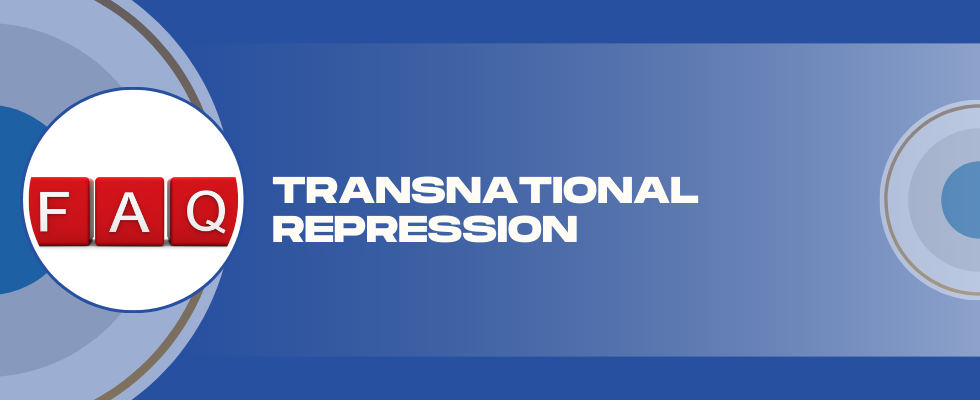According to the Federal Bureau of Investigation (FBI), transnational repression refers to the tactics employed by foreign governments to threaten, intimidate, and silence individuals living in other countries.
Transnational repression can take on the following forms:
- Stalking
- Harassment
- Hacking
- Assaults
- Attempted kidnapping
- Forcing or coercing the victim to return to the country of origin
- Threatening or detaining family members in the country of origin
- Freezing financial assets
- Online disinformation campaigns
In extreme cases, transnational repression can entail:
- Detention
- Kidnapping
- Reprisal against family members
- Assassination
The Indian government has engaged in various forms of transnational repression, including assassination, digital censorship and harassment, and the cancellation of passports and Overseas Citizen of India (OCI) cards.
Assassinations
In June 2023, the Canadian government accused the Modi regime of assassinating Sikh activist Hardeep Singh Nijjar on Canadian soil. In December 2023, the United States government accused the Indian government of plotting to assassinate Sikh activist and American citizen Gurpatwant Singh Pannun. Both assassinations have been condemned by US officials as an example of India’s increasing use of transnational repression.
Passport & OCI Card Cancellation
The Modi regime has weaponized the excuse of protecting “the security of India” to prevent their critics from entering India by canceling their Overseas Citizen of India (OCI) cards. An OCI card is a multiple-entry, lifelong, multi-purpose visa that can be registered to any person of Indian origin who has either been a citizen or is eligible to be a citizen of India.
The government has also stripped individuals of their passports. Middle East Eye reported in 2021 that the Modi regime suspended the passports of several Kashmiris, both in Kashmir and abroad, including academics, students, and journalists.
Online Censorship
The Modi government frequently censors its critics online, using its overreaching internet law to restrict or remove the content of Indian-origin activists, politicians, journalists and critics based abroad. For example, multiple websites of US-based organizations tracking and studying Hindu supremacist hate in India have been blocked in India by the Ministry of Electronics and Information Technology.
Social media companies such as X and Meta frequently comply with the Indian government’s demands that they remove critical content from their platforms.
Digital Harassment and Smear Campaigns
Actors linked to the Modi government, including BJP leaders, the party’s IT cell, and cyber volunteers, frequently rally their Hindu supremacist supporters to digitally harass individuals – especially academics, activists, and journalists – living outside of India. One notable example is the targeted harassment campaign against academics launched by both Indian and American Hindu supremacists, in an attempt to shut down the Dismantling Global Hindutva academic conference in 2021.
Journalists, activists, lawyers, and critics of the Modi government, particularly those from minority and marginalized communities, are the primary targets of India’s transnational repression. However, grassroots activists and low-profile social media users have also faced censorship or been harassed.
As the FBI notes, a key purpose of transnational repression is to silence the voices of its critics or to create a chilling effect in which groups or individuals self-censor out of fear. Transnational repression against the diaspora usually takes the form of online harassment or censorship.
A statement provided to the United States Commission on International Religious Freedom (USCIRF) by the advocacy group Sikh Coalition reports that “social media users critical of India’s draconian policies routinely have their accounts restricted at the request of the government… The Sikh Coalition has also received reports from individuals in the United States receiving threatening messages after attending peaceful protests critical of the Indian government.”
In October 2023, IAMC’s X account was withheld in India in response to a “legal removal demand” from the Indian government. Two days after the suspension, X wrote IAMC to inform that the government demand “claims the following content violates India’s Information Technology Act, 2000.” IAMC’s X account has yet to be restored in India.
In addition to having our X account withheld, IAMC has repeatedly been the target of transnational repression from the Indian government. A notable driver of disinformation campaigns against IAMC has been the Disinfo Lab. According to The Washington Post, Disinfo Lab is a covert operation set up by an Indian intelligence officer, masquerading as a fact-checking website to “ discredit foreign critics of the Modi government.”
In 2021, the Disinfo Lab published a number of baseless reports labeling IAMC as a “US-based Islamist group” that operates under a “US-based umbrella front of Jamaat-e-Islami Pakistan.”
In January 2022, Tripura police submitted an affidavit to the Indian Supreme Court, falsely claiming that “there is information of [IAMC’s] connivance with Inter Services Intelligence (ISI) of Pakistan and has link with Pan-Islamist networks-Jamaat & terror-linked groups.” The affidavit listed its source for the claim as Disinfo Lab.
Days later, then BJP government minister claimed at a press conference that IAMC had been “long involved in spreading anti-India propaganda,” citing the affidavit.
Anyone living in the United States, regardless of citizenship status, has the right to freedom of speech and expression and can report instances of transnational repression.
If you have been the target of transnational repression, contact the FBI at tips.fbi.gov., or call 1-800-CALL-FBI (1-800-225-5324). Victims should report any immediate threats or harassment to local law enforcement for protection and documentation of incidents.

